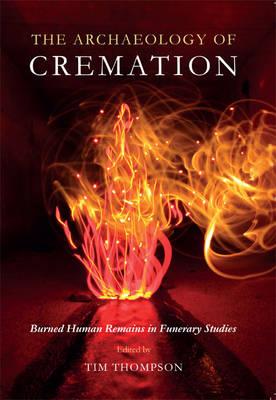Overview
Human societies have disposed of their dead in a variety of ways. However, while considerable attention has been paid to bodies that were buried, comparatively little work has been devoted to understanding the nature of cremated remains, despite their visibility through time. It has been argued that this is the result of decades of misunderstanding regarding the potential information that this material holds, combined with properties that make burned bone inherently difficult to analyse. As such, there is a considerable body of knowledge on the concepts and practices of inhumation yet our understanding of cremation ritual and practice is by comparison, woefully inadequate. This timely volume therefore draws together the inventive methodology that has been developed for this material and combines it with a fuller interpretation of the archaeological funerary context. It demonstrates how an innovative methodology, when applied to a challenging material, can produce new and exciting interpretations of archaeological sites and funerary contexts. The reader is introduced to the nature of burned human remains and the destructive effect that fire can have on the body. Subsequent chapters describe important cremation practices and sites from around the world and from the Neolithic period to the modern day. By emphasising the need for a robust methodology combined with a nuanced interpretation, it is possible to begin to appreciate the significance and wide-spread adoption of this practice of dealing with the dead.
Full Product Details
Author: Tim Thompson
Publisher: Oxbow Books
Imprint: Oxbow Books
Volume: 8
Dimensions:
Width: 17.00cm
, Height: 1.50cm
, Length: 24.00cm
Weight: 0.612kg
ISBN: 9781782978480
ISBN 10: 1782978488
Pages: 256
Publication Date: 15 June 2015
Audience:
Professional and scholarly
,
Professional & Vocational
Format: Paperback
Publisher's Status: Active
Availability: In Print 
This item will be ordered in for you from one of our suppliers. Upon receipt, we will promptly dispatch it out to you. For in store availability, please contact us.
Table of Contents
Preamble 1. Foreword, by Jacqueline I. McKinley 2. Fire and the body; fire and the people Tim Thompson 3. Flesh, Fire, and Funerary Remains from the Neolithic site of La Varde, Guernsey: Investigations Past and Present, Jenny Cataroche and Rebecca Gowland 4. Past cremation practices from a bioarchaeological perspective – how new methods and techniques revealed conceptual changes in cremation practices during the late Bronze Age and early Iron Age in Denmark Lise Harvig 5. the bioarchaeological analysis of cremation at the Iron Age necropolis of Tera (Portugal) David Gonçalves,, Vanessa Campanacho, Tim Thompson and Rui Mataloto 6. Funerary rituals and ideologies in the Phoenician-Punic necropolis of Monte Sirai (Carbonia, Sardinia, Italy). Giampaolo Piga, Michele Guirguis and Ethel Allue 7. The funerary practice of cremation at Augusta Emerita (Mérida, Spain) Filipa Cortesão Silva 8. The integration of microscopic techniques in cremation studies: A new approach to understanding social identity among cremation practicing groups from early Anglo-Saxon England ?Squires 9. Analysing cremated human remains from the southern Brazilian highlands: Interpreting archaeological evidence of funerary practice at mound and enclosure complexes in the Pelotas River Valley Priscilla Ferreira Ulguim 10. Case Applications of Recent Research on Thermal Effects on the Skeleton Douglas H. Ubelaker 11. The interpretation and reconstruction of the post mortem events in a case of scattered burned remains in Chile Claudia Garrido-Varas and Marisol Intriago-Leiva 12. Conclusions Tim Thompson
Reviews
These two books reveal, through international case studies, the enormous variety of ways in which inhumation or cremation can occur and has taken place, and why that might have been so. -- Mike Pitts, Reviews Editor British Archaeology
Author Information
Tim Thompson is a Reader in Biological & Forensic Anthropology in the School of Science & Engineering at Teeside University. His main areas of research focus on the human body and how it changes, particularly in the modern context, with emphasis on studying the effects of burning on the skeleton, the development of new analytical tools and the role of forensic anthropology.
Tab Content 6
Author Website:
Customer Reviews
Recent Reviews
No review item found!
Add your own review!
Countries Available
All regions
|




